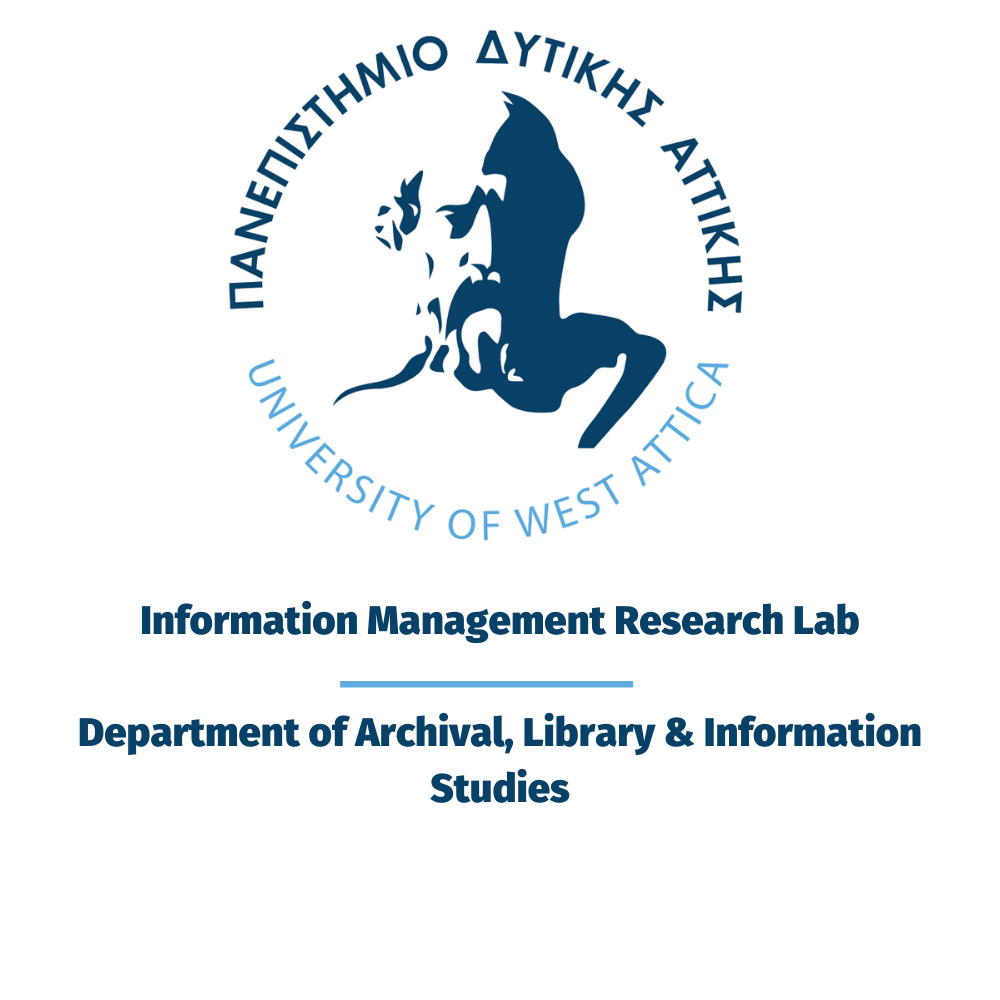Post-Doctoral Research Summary
The role of Information and Communication Technologies (ICT) and analytics in the evolution of Libraries, Archives, and Museums (LAM) services is pivotal. These technologies are not just tools for broadening user engagement with web-based content, but also for enhancing the visibility of LAM collections and services. The past decade has seen a significant shift from a focus on content preservation to prioritizing user experiences and interactions, as well as the analysis and enhancement of the services offered by LAM to the public. Web analytics, generated through websites and social networks, are among the key elements that LAM employ in their digital strategy to heighten the visibility of their collections and services.
In addition to websites and social networks, analytics are also generated by various other technologies, including mobile applications, intelligent tours, and virtual or augmented reality, thus underscoring the increasing need for ICT and analytics within LAM to upgrade the services provided to the public. This assertion is reinforced by ongoing pan-European collaborations to transition LAM content into the digital realm (Siqueira & Martins, 2022; Petras et al., 2017). Notably, research initiatives such as Europeana, the CrossCult, EMOTIVE, inDICEs programs, and the Google Arts and Culture platform exemplify endeavours to enrich the online visibility of LAM services and content.
A closer examination of these initiatives reveals two principal contributions. The first involves emphasizing the need to exchange knowledge and best practices between the humanities and information technology disciplines, aiming to bridge the two domains further. The second contribution centres on developing frameworks for retrieving, preprocessing, analyzing, and interpreting web-generated analytics by LAM, alongside innovative methods for visitor interaction with cultural content in both physical and digital environments. Indeed, from early research efforts in the nascent stages of the web to recent endeavours, LAM has endeavoured to leverage analytics produced by websites and social networks to promote their collections and services (Mensah & Onyancha, 2021; Krstić & Masliković, 2018; Hume & Mills, 2011; Voorbij, 2010; Marty, 2008; Davoli et al., 2005; Sarraf, 1999).
To this end, within the framework of the doctoral research titled "Web Analytics for Libraries, Archives and Museums: A Data-Driven Strategic Information Systems Planning Approach," a unified framework for utilizing web analytics was developed. This laid the groundwork for a) enhancing the knowledge and skills of LAM staff in web analytics, b) shaping robust and reliable performance evaluation frameworks for websites and social networks, encompassing over 180 web metrics, and c) formulating a strategic prioritization of requirements, pinpointing areas that require improvement on LAM websites and the social networks they engage with.
Building upon this research, the current proposal for postdoctoral research aims to further disseminate the significance of Web Analytics for libraries, archives, and museums. The objective of the proposed postdoctoral research is to advance, both theoretically and practically, the application of web analytics for LAM. This will be achieved through a comprehensive exploration of the potential of web analytics in LAM, and the development of practical strategies for its implementation.
Research Interests
- Information Systems
- Digital Analytics
- Search Engines
- Search Engines
- Web Mining

Post-Doctoral Affiliation - Information Management Research Lab
Founded in 2018 the Information Management Research Lab (IML) (Εργαστήριο Διαχείρισης της Πληφορορίας), constitutes the most vital research part of the Department of Archival, Library and Information Studies. The scientific and operational field of the IML is related to the Information Science, the strategies and the methods for the efficient management and utilization of data and information, independently the substrate on which they are maintained and organized. At the same time, the lab forges, develops and sustains methods and practices in relation to management of cultural information which derives from Archives, Libraries and Museums, while not excluding business data and information for greater decision making within organizations. Fostering and cultivating the openness, the IML aims to host scientific, business and societal actions that are capable to increase the knowledge among the interest parties in related topics such as data management, databases and metadata structures and organization, information retrieval, search engines, scientometrics and scholarly communication, digitization, documentation and preservation both for physical and digital subsistence.